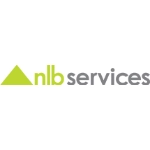© 2025 Next Level Business Services Inc. All Rights Reserved.
EOR in India: A Comprehensive Guide for Global Companies
By NLB Services
In today’s digital age, businesses can easily tap into a global talent pool thanks to increased digitization and interconnectedness across borders. India, in particular, has become an attractive staffing hub for companies seeking resources in Information Technology, Digital Marketing, Accounting, Human Resources, and other back-office operations. As a result, foreign companies are increasingly hiring Indian workers. But if you want to expand and hire full-time employees without setting up a physical office in the target geography can work with EOR.
Registering a legal entity can take months, and after establishment, it requires know-how of complex employment and labor laws in India. Any miss-out or negligence can attract fines and legal actions. So, how can you best hire employees from India for your business without getting into so much fuss? The answer lies in leveraging EOR (Employer of Record) services.
In this comprehensive Employer of Record guide, we’ll delve into the essential details about EOR services in India. By partnering with an EOR company, you can offload responsibilities related to payroll, compliance, employee benefits, and HR administration. Your Indian team can work seamlessly with you, just like any other employee, without the need for you to establish a local Indian entity.
An Employer of Record India is a strategic partner that serves as the legal employer of your employees living in India. The EOR assumes critical responsibilities such as hiring, onboarding, payroll management, and ensuring compliance with local labor laws and regulations.
The key advantages of using an EOR India include:
- Efficient Hiring and Onboarding: Companies can swiftly onboard employees without the need to establish a local legal entity.
- Comprehensive Payroll Management: EORs handle payroll processing, tax withholdings, social security contributions, and statutory benefits.
- Legal Compliance: EORs navigate the complexities of Indian labor laws, minimizing risks associated with misclassification or non-compliance.
- Local HR Support: EORs provide expertise and support for managing employees in India.
By partnering with an EOR or Employer of Record Service provider, companies can focus on their core business while leaving employment-related tasks to the experts—a convenient and cost-effective solution for expanding into the Indian market.
Comparing EOR and Setting Up a Local Entity
| Feature | EOR | Legal Entity |
|---|---|---|
| Implementation | Less time consuming to set up Can start hiring within days |
Can take up to 6 months to set up and involves registration fees. |
| Cost | Becomes costlier as employee strength increases | Can be more cost-effective if the headcount is large in a foreign country |
| Hiring | Can initiate and recruit new hires often in a matter of days | Can support last-scale expansion in a foreign market |
| Compliance | EOR manages all of your compliance hassles, takes on liability, and provides localized employment contracts.
Certain policies and HR/ legal processes can not be customized to suit your business needs. A certain set is made available. |
Needs expert knowledge of local laws, tax regulations, and internal legal resources, your company would be liable for all legal and compliance infractions.
Offers more degree of customization and tailoring of certain policies, legal and HR processes as per business needs. |
| Payroll and Benefits | Can swiftly pay and insure employees, whichever country EOR operates.
Taxes are managed and filed on your behalf. |
Will have to hire someone additionally to keep manual track of statutory deductions and employee entitlements for every hire. |
Benefits of Using EOR services in India
EOR in India eases the expansion process by taking on complete responsibility on the legal and compliance front for the client. THE EOR hires employees, handles human resource tasks, and ensures compliance with local laws.
- Global expansion and faster onboarding: Using an EOR helps you expand globally and start operations at the earliest by faster onboarding. EOR enables you to start within days instead of waiting to set up a legal entity and begin the hiring process.
- Compliance and local expertise: EORs have expertise in local labor laws, tax regulations, and best employment practices. This ensures that your operations are compliant and there is no risk of legal issues or interference.
- Cost efficiency: By partnering with an EOR, you save on costs significantly as you avoid costs associated with setting up and maintaining a local legal entity, allowing companies to allocate these resources more effectively.
- Flexibility and scalability: EORs allow flexibility in workforce management, enabling companies to scale up or down their operations as per business requirements without the limitations of permanent establishment.
- Risk mitigation and focus on core competencies: As EOR takes complete legal responsibility for the employees, a significant amount of risk is being mitigated by EOR. By partnering with an EOR, you also outsource HR and administrative tasks, enabling the organization to focus on its core competencies and utilize resources better.
EOR Services Breakdown
Once the decision to finalize the EOR is done and necessary agreements and contracts are signed, here is a breakdown of how EOR services function:
a) Hiring Process with an EOR
The first step is sourcing and recruitment, crucial details of potential candidates fit/ finalized for the job are collected and processed by EOR. The EOR partner will then draft localized employment agreements to ensure the documentation process is in compliance with the labor laws. The agreements will have certain information about terms of employment, compensation structure, terms and conditions, date of joining, onboarding guidelines, statutory and optional benefits, etc.
b) Onboarding Employees in India
Once you’ve gathered all the essential details, share them with your EOR service provider in India. They’ll then create localized employment agreements that comply fully with regulations. For each new Indian employee you hire, the EOR will prepare legally sound employment contracts covering critical aspects like probationary periods, termination policies, working hours, benefits, and other necessary information.
EOR companies in India, such as NLB Services, allow you to tailor employee benefits and leave policies according to local statutory requirements set by state authorities (especially if there are variations in laws across different states). With an EOR partner, you have the flexibility to customize features like leave management and expense reimbursement to suit your needs. During this time, EORs set up payroll for the employees and make them aware of the company policies and culture.
c) Payroll Management
Managing payroll with an EOR partner in India is incredibly straightforward. You won’t need to deal with the complexities of tax calculations, salary deductions, and payment processing. All this is being taken care of by the EOR. Efficient Employer of Record providers like NLB Services ensures swift payroll processing. Employees will receive their salaries in INR, and the EOR partner handles deductions and tax calculations in compliance with labor laws and different entitlements. Also, payroll involves the processing of other statutory add-ons such as internet allowance, cab allowance, etc.
Key salary components processed during payroll include:
Tax Deducted at Source (TDS)
Employees’ Pension Scheme (EPS)
Employees’ Provident Fund (EPF)
Employees’ State Insurance (ESI)
Allowances if any
d) Taxation and Compliance in India
Taxes are a critical aspect of the Indian financial system. Employees in India are liable to pay different types of taxes based on income, purchase, or profits. The primary taxes that employees pay or must be aware of are income tax, Tax Deducted at Source, and professional tax. After particular exemptions, these taxes are mandatory to be paid by each working employee.
Here is a brief information about these taxes for better understanding and ensuring compliance –
Income tax: It is a direct tax imposed by the government on an individual’s income, there are different tax slabs on different income brackets. Income tax for up to rs 3 lakh is nil, and after that taxes increase as per the increase in income. Here is a table that you can refer to for full information about all tax slabs in India for the financial year 2024-25
Tax Deducted at Source: TDS is a system under which the tax is deducted at the source of income by the payer and is paid to the government. In India, it is mandatory for employers to deduct TDS from their employees’ salaries as per applicable tax slabs and give it to the government.
Professional Tax: Professional tax is a state-level tax imposed on salaried individuals, professionals, and businesses. The specific rates and thresholds differ across states. Typically, employers handle the deduction of professional tax from their employees’ salaries and remit it to the state government. It varies from state to state and industry to industry.
e) Employee Benefits and Entitlements
Employee benefits play a vital role in the compensation packages provided by Indian companies. These benefits not only aid in attracting and retaining top talent but also enhance employee well-being and job satisfaction. In India, employee benefits fall into two main categories: statutory benefits and supplementary perks.
Mandatory benefits in India:
Provident Fund (PF): An Employee’s Provident Fund is a fund where both employers and employees contribute 12% of the basic salary in a fund known as EPF. It can be withdrawn by the employee after a certain duration.
Employee State Insurance (ESI): The company provides medical benefits to employees who earn below a certain threshold. Employers contribute 3.25% of the salary and employees contribute 0.75%.
Gratuity: Gratuity is entitled to employees who have completed at least 5 years of service with a company. It is calculated as 15 days’ salary for each completed year of service.
Leave policies: Employees are entitled to a certain number of leaves for which their salaries will not be deducted. These include:
- Earned Leave: Employees are usually offered 15 days of earned or privileged leave in a year, they can be carried forward as well.
- Casual leave: Apart from entitled leaves, employees are also entitled to 7-10 casual leave in a year. They usually can not be carried forward.
- Sick leave: Employees are given 10-12 sick leaves yearly.
- Maternity Leave: As per the Maternity Benefit Act in India, this leave is offered to female employees, this includes 8 weeks of prenatal and 18 weeks of postnatal leave.
- Paternity leave: Usually not offered in every organization, some companies of up to two weeks of paternity leave.
- Public Holidays: Companies offer at least 4 public holidays to every employee, in some organizations there can be more.
Optional benefits: There are other optional benefits as well that can be given to the employees based on different conditions and arrangements. They can be used to make a compelling compensation benefits package apart from attractive pay. This includes health insurance, retirement benefits meal allowances, transport allowances, wellness programs, coupons, and flexible work arrangements.
Managing Contractors vs. Full-Time Employees
EORs offer flexible solutions for managing both contractors and full-time employees and address the unique challenges that each work arrangement of employees has:
Hiring contractors is for hiring part-time workers and this involves handling contracts, payments, and compliance for independent contractors. This also allows a greater degree of scalability of reducing or increasing the workforce as per the business requirements
Full-time employee hiring involves complete HR function management, payroll, and benefits. This type of arrangement is suitable for long-term scalable operations where you plan to expand your business and sustain it for longer in India. Management hierarchy is set up in this. EORs, under this arrangement, work as the legal employer through and through on your behalf.
Choosing the Right EOR Provider
When expanding your business in India, choosing the right EOR provider is a critical step and a successful expansion. These are the factors that you should consider while choosing an EOR partner:
Compliance and legal expertise
An EOR with proven experience and expertise in the Indian market can be your best bet. As they have a deep understanding of the local labor laws, tax regulations, and employment practices, there will be high-risk mitigation, and all operations to be in 100% compliance.
Range of services offered
Check EOr offers a comprehensive range of services, including but not limited to recruitment, payroll management, compliance, administrative handling, taxation, and employee benefits management.
Reputation and Client Testimonials: Invest some time in exploring and researching EOR’s market reputation and also look for references and client recommendations. Positive testimonials and case studies offer insightful information and credibility for the reliance on their service quality.
Technology and platform capabilities
It only makes sense to evaluate the EOR’s infrastructural, technological, and support capabilities. A robust HR and payroll management system, responsive customer support, strong legal and compliance team are essential for hassle-free operations.
Conclusion
Venturing into the Indian market holds great promise for global companies, but it also comes with its share of complexities. Collaborating with an Employer of Record (EOR) can streamline the process, offering a cost-effective, compliant, and efficient way to handle HR functions. By tapping into the EOR’s expertise, businesses can concentrate on their core activities while ensuring a seamless and successful entry into the market. Whether you’re hiring your first employee in India or expanding your operations, an EOR can be a valuable ally on your growth journey. Planning to expand your business in India, without opening a physical office? Check out NLB Services’ EOR services offering specifically designed for companies to expand in India and get the best talent in the market.
Talent Solutions








